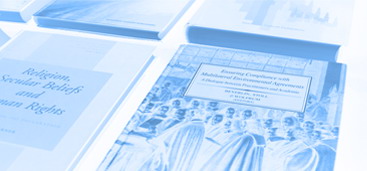Introduction to Russian Civil Law System
Reporter: Yuri Lubimov,The Chair of Civil Law of the Law Faculty of Saint-Petersburg University, professor.
Russia is a civil law country. The system of private law is based upon the German “Pandekt” tradition of Roman law. Bills adopted by Parliament (State Duma) and signed by President are main sources of law. Government, Ministries and some governmental agencies may adopt bylaw regulations. Civil law is codified, Civil code consists of 3 parts, adopted respectively 1994, 1996 and 2001, the 4th part regulating intellectual property being passed to the State Duma this July. Separate legislation on companies, banking, finance, insurance, real estate and other basic institutions of the market economy has been adopted mostly through the 1990th. At the present time much of that regulation is being revised in order to satisfy the needs of a fast growing economy. Some parts of Russian commercial law have been strongly influenced by American law.
The Civil code comprises general provisions with sections regulating persons and their legal capacity, classification of objects, instruments and securities, transactions, powers of attorney, calculation of periods, remedies etc. Particular provisions of the Code include rules of property, contracts, obligations, inheritance and international private law. Incorporation of IP law into the Code will conclude the codification of Russian private law.
The law of persons basically corresponds to the European tradition. Family law is codified in a separate act (the Family code).
Russia has internationally acknowledged types of business corporations most closely bound to the German system. Joint-stock companies and private limited liability companies are regulated both in the Civil code and in special laws. A profound reform of company law aimed at combating of greenmail and ranger attacks against corporations is under way. Russia has detailed regulation of bankruptcy. To avoid the use of bankruptcy law in illegal redistribution of property it has been reformed three times. Incorporation of companies is quick and simple, with the minimal share capital required for a llc of approx. $350.
The right of private property has first been established in 1990 and affirmed in the Civil code I in 1994. To the moment most considerable assets are in private hands. Land and residential real estate may also be acquired by private persons with several insignificant restrictions for foreigners. Russia has German-type regulation of property, although a part of legislation is still influenced by the soviet past. One of the most remarkable particularities is a system of restricted property rights of state enterprises and institutions. These corporations do not own their property, having right to use it in the way defined by owner. An attempt to introduce trust property in Russia has failed. Regulation of mortgage is modern and comprehensive.
Russia has developed regulation of contracts. Most common provisions on obligations have the wording of the Vienna convention for the international sale of goods. Like in most European countries we have detailed provisions for each type of business contracts (sale, lease, deposit, service, society etc.). Regulation on several types of obligations (franchise, leasing) is borrowed from the Anglo-Saxon tradition. Most contracts are regulated in part II of the Civil code, although some types of obligations are ruled by separate laws.
The legislation on securities and financial markets is developing very fast. Russian regulation on securities trade, stock exchanges, financial consulting, depositary services and mutual funds is fit to the world standards. The law on inside trading is under way.
Inheritance law has been reformed with the adoption of the Civil code III. New provisions have minimized the opportunity that private property can go to the State. The right to inherit property by way of testament has been widened and liberalized.
The reform of the IP law is one of the most actual issues at the moment, Russia being one of the world’s leaders in producing counterfeited goods. Presently Russia has separate regulation of copyright law, patent law, trademarks and other fields of intellectual property. This regulation has been adopted in the early 90th and it basically satisfies international standards. The 4th part of the Civil code tends to abolish separate regulations in order to create a universal act with general provisions. Some decisions proposed by the drafters of the 4th part are revolutionary, e.g. an attempt to provide regulation for web domains.

